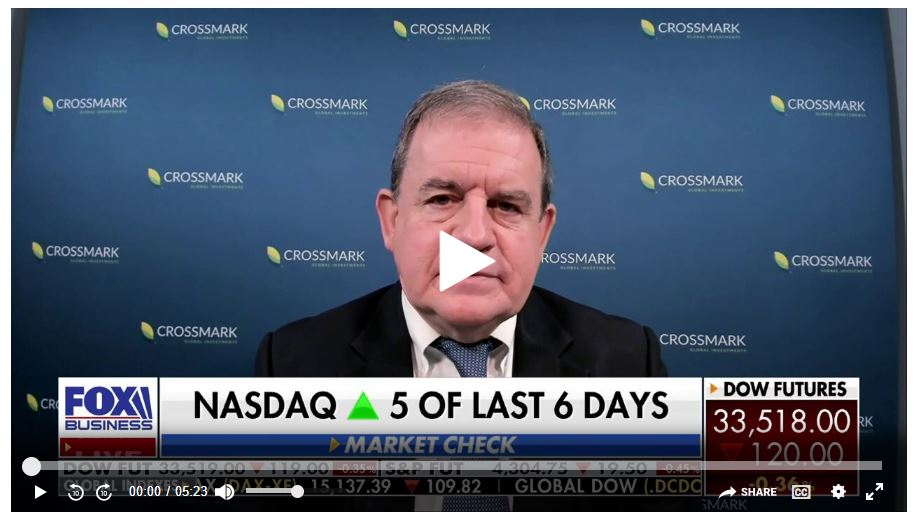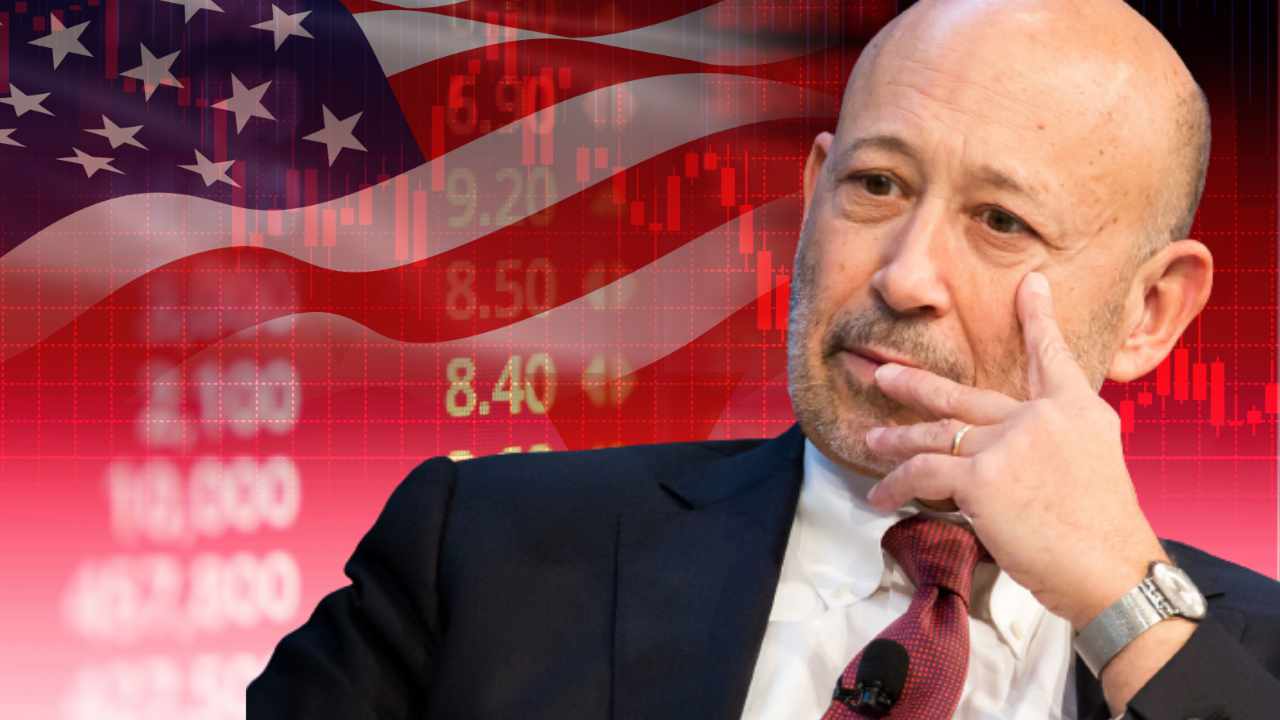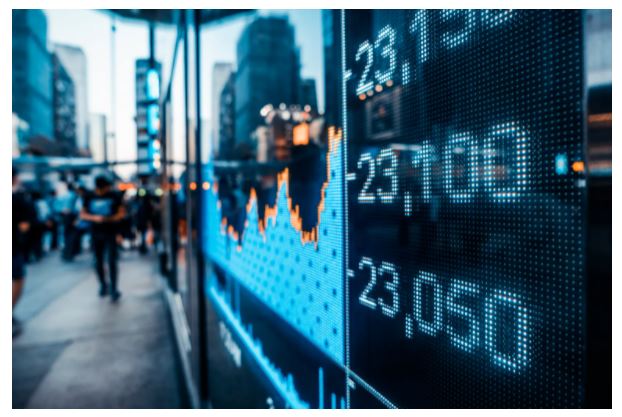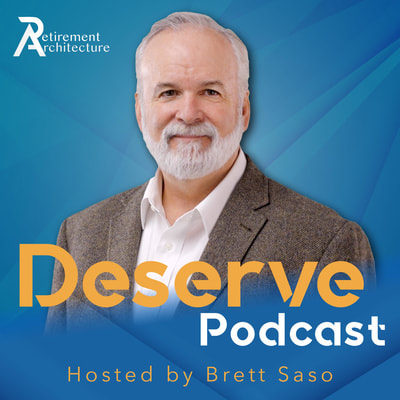|
If the White House and Congress don't cut spending soon, the results could be catastrophic!
As the White House continues to tout the alleged achievements of the president’s "Bidenomics" agenda, a growing amount of data indicates that a gigantic economic crisis could be right around the corner. Most disturbingly, one important economic indicator that’s currently flashing hasn’t appeared since the 1930s, during the height of the Great Depression. If the White House and Congress do not cut inflation-causing government spending soon, the results could be catastrophic. (READ MORE)
https://www.foxbusiness.com/economy/new-data-reveals-crash-not-since-great-depression-could-hit-2024
0 Comments
After a miserable year in 2022 and continued stock market volatility, we believe the contours of the next bull market are beginning to take shape. After a decade of growth at any price, we believe many high-flying technology and consumer names are retrenching, allowing the forgotten areas of the market to assume the spotlight. In this week’s update, we discuss the impact of this asset allocation shift and areas that we think stand to benefit in 2023. The information here is presented by licensed professionals and not specific to any individual’s personal circumstances. Investment advisory services offered through LifePro Asset Management, LLC, a SEC registered investment adviser. Investments involve risk and are not guaranteed. Different types of investments involve varying degrees of risk, and there can be no assurance that the future performance of any specific investment or investment strategy will be profitable or equal any historical performance. Discussion of any specific stocks are based on objective, non-performance criteria and such discussion neither serves as a recommendation nor as the receipt of, or a substitute for, personalized advice. Due to various factors, including changing market conditions, such discussion of positions and/or recommendations may no longer be reflective of current position(s) and/or recommendation(s). Moreover, no client or prospective client should assume that any such discussion serves as the receipt of, or a substitute for, personalized advice from Advisor, or from any other investment professional. Forward-looking statements such as “anticipate,” “believe,” “estimate,” “expect,” “intend,” “plan,” are based on management’s views and assumptions at the time such statements were originally made and involve known and unknown risks and uncertainties that could cause actual results, performance or events to differ materially from those expressed or implied in such statements. LifePro Asset Management does not undertake any obligation to correct or update any forward-looking statements on the LPAM Site.
As many of you know, I record an economic commentary every year. You can watch the previous years' right here on YouTube. 2022 was a heck of a year, so my predictions for 2023 kept changing as new things were happening all over the world. You don't want to miss a single minute of this one! Topic - Can the Fed Become Your Friend? Click here to visit the LifePro Asset Management YOUTUBE channel (LINK)
The information here is presented by licensed professionals and not specific to any individual’s personal circumstances. Investment advisory services offered through LifePro Asset Management, LLC, a SEC registered investment adviser. Investments involve risk and are not guaranteed. Different types of investments involve varying degrees of risk, and there can be no assurance that the future performance of any specific investment or investment strategy will be profitable or equal any historical performance. Discussion of any specific stocks are based on objective, non-performance criteria and such discussion neither serves as a recommendation nor as the receipt of, or a substitute for, personalized advice. Due to various factors, including changing market conditions, such discussion of positions and/or recommendations may no longer be reflective of current position(s) and/or recommendation(s). Moreover, no client or prospective client should assume that any such discussion serves as the receipt of, or a substitute for, personalized advice from Advisor, or from any other investment professional. Forward-looking statements such as “anticipate,” “believe,” “estimate,” “expect,” “intend,” “plan,” are based on management’s views and assumptions at the time such statements were originally made and involve known and unknown risks and uncertainties that could cause actual results, performance or events to differ materially from those expressed or implied in such statements. LifePro Asset Management does not undertake any obligation to correct or update any forward-looking statements on the LPAM Site. Jeremy Grantham is a famed investor and historian of stock markets.
Grantham said he expects the S&P 500 to fall at least 40% from its peak in what will likely be a multi-year decline for stocks. That would send the S&P 500 to about 2,880, a level not seen since the March 2020 COVID-19 bear market. The S&P 500 is currently down 18% year-to-date, trading at the 3,925 level as of Wednesday afternoon. On the surface, the current stock market looks similar to the 2000 dot-com bubble given that much of the damage has been concentrated in US tech stocks. "This bubble superficially looks very much like 2000, focused on US tech, led by Nasdaq going to incredible highs, with the opening weakness in Nasdaq, which started to fall along with the Russell 2000 long before the S&P [500] did," Grantham said. But there are a couple of serious differences between the 2000 dot-com bubble and today's stock market that scare Grantham. "What I fear is that there are a couple of differences with 2000 that are more serious. One of them is that 2000 was exclusively in US stocks, the bonds were great, the yields were terrific, housing was cheap [and] commodities were well behaved," Grantham said, adding that in comparison to today, 2000 "was paradise." But commodity prices going through the roof as Russia continues its war against Ukraine, and the fact that raising interest rates from a floor of almost 0% translates into a lot of pain for the bond market. "What you never want to do in a bubble is mess with housing, and we're selling at a higher multiple of family income than we did at the top of the so-called housing bubble in 2006. In addition, the bond market recently had the lowest lows in 6,000 years of history. In addition, energy [prices] prices have pushed up, [and] metals and food prices are actually on the UN index higher than they have ever been before in real terms," Grantham said. "So we are really messing with all of the assets so this has turned out historically to be very dangerous," Grantham added, pointing to similarities between today and Japan's massive asset bubble in the late 1980s. Japanese stocks have yet to reclaim the high seen at their peak in 1989. And while investors are keen to hunt for opportunities in the stock market given that valuations have hit levels not seen in years, Grantham preaches caution, highlighting that the estimated profit margins at most companies will deteriorate as an economic recession materializes. "The first thing to go in a recession is profit margins, and that is very likely to happen this time. We should be in some sort of recession pretty quickly." That scenario is playing out in retail earnings this week, with both Walmart and Target forecasting an increase in input costs and lower profit margins because of it. What's even more dire is the potential for Grantham's forecasted recession to morph into something like the 1970's, where economic growth slows and inflation persists. "You have shades of stagflation as we had in the 1970's." Read the original article on Business Insider https://finance.yahoo.com/news/jeremy-grantham-says-p-500-193206808.html Goldman Sachs Senior Chairman and former CEO Lloyd
Blankfein has warned that companies and consumers should prepare for a recession in the U.S. He stressed that it’s a “very, very, high risk.” Goldman’s Blankfein Warns About a Recession Lloyd Blankfein, a former Goldman Sachs CEO who is now the firm’s senior chairman, warned about an impending recession in the U.S. in an interview with CBS News, aired Sunday. He stressed that companies and consumers should be prepared for it. Blankfein served as chairman and chief executive officer of global investment bank Goldman Sachs from 2006 through September 2018. He remained chairman through December 2018 and is now senior chairman of the Goldman Sachs Group. He was asked, “Do you think we’re headed towards recession?” Blankfein replied:We’re certainly heading. It’s certainly a very, very high risk factor … If I were running a big company, I would be very prepared for it. If I was a consumer, I’d be prepared for it. However, the Goldman Sachs senior chairman explained that a recession is “not baked in the cake,” noting that there’s “a narrow path” to avoid it. Commenting on the Federal Reserve’s response to inflation, he said, “I think they’re responding well.” He added, “I think the Fed has very powerful tools.”Blankfein was asked if the Fed is doing what’s needed to control inflation. He replied: “there’s an imbalance, too much demand. And what you have to do is you have to slow down that demand.” The former Goldman CEO elaborated: You have to slow down the economy. And so they’re going to have to raise rates. They’re going to have to curtail, hopefully reduce the number of positions that are unopened … and increase the size of the labor force. “This inflation, some of it is sticky … we have something like 8% inflation. Some of that is transitory [and] will go away. You know, eventually, the war in Ukraine will be over. Some of the supply chain shocks will go away, but some of it will be a little bit stickier and will be with us for a while,” he concluded. A number of analysts have predicted that the U.S. will be in recession. Deutsche Bank said there will be a major U.S. recession next year. Blankfein’s own investment bank, Goldman Sachs, said the odds of a recession happening in two years is 35%. Furthermore, Bank of America‘s strategist warned in April that a “recession shock” is coming. https://news.bitcoin.com/goldman-sachs-blankfein-advises-companies-and-consumers-to-prepare-for-us-recession-says-its-a-very-very-high-risk/ Interest rates are poised to rise, which is bad news for bonds. Investors seeking a measure of safety along with the possibility of a return have a few choice alternatives to consider instead.
by: Patrick Mueller, Investment Adviser Representative, RFC March 17, 2022 Most people think bonds are safe, but in today’s volatile climate, they are not. In the not-too-distant past, bonds were portrayed as a secure part of a portfolio – a safer investment than stocks. Investors looked to government bonds as the bedrock of a stable retirement income. But bond yields are extremely low these days, prompting some investors to seek alternatives. This has sparked renewed interest in various investments that can generate passive income and stability. Most people don’t remember what a bad bond market looks like because we haven’t seen one for 30-plus years! We’ve had steadily declining interest rates since the mid-1980s. Bond prices move in the opposite direction of interest rates. If interest rates rise, bond prices fall, and vice versa. The Federal Reserve has indicated it will be raising interest rates in 2022 and slowing its purchase of bonds, so the climate is likely to be less favorable for long-term bonds going forward. And with bonds paying historically low interest rates, long-term bonds falling in price could mean a low-yield investment for years. The problem with bond mutual funds Bonds issue at par value of $1,000, and you are in effect loaning a corporation or some form of government your $1,000. There is a length of time you have to leave it there, until it reaches what is known as its maturity date, which can range from one year to 40-plus years. There will be a set interest rate for that length of time. So, if interest rates rise and bond prices fall, you can hold until maturity and get your $1,000 back. READ MORE... Jan. 05, 2022 8:04 AM ET
Summary
In December 2019, I published an article in which I argued, that the economy was completely detached from the stock market - especially in the United States. About 2.5 months later, the brutal 5-week crash and recession followed. I am referring to this article not because I predicted the stock market crash and recession (I published articles before warning about high stock market valuations), but due to the structure of this article. I used several metrics and in the following article I want to use the same metrics again and try to determine where we are in the cycle. Valuation About 2 years after the above-mentioned article, the stock market is even more detached from the economy as many stocks are trading for even higher prices, but the economy (or at least several sectors) must deal with the consequences of the last recession. And even when acknowledging, that we are always dealing with probabilities and should avoid words like "certain" or "without any doubt", I am as certain as I can be, that the US stock market is extremely overvalued. READ MORE
|
Birdseye News BlogAn Educational Source of News. This information is educational only in nature and should not be considered investment, tax or legal advice of any kind. Archives
October 2023
Categories |
CLICK TO READ OUR FULL DISCLOSURE
The information contained herein: (1) is proprietary to Birdseye Financial Group and/or its content providers; (2) may not be copied or distributed; and (3) is not warranted to be accurate, complete, or timely. Any information herein about providers, speakers, and services does not constitute a recommendation or endorsement. This material is not to be distributed without the express written consent of Birdseye Financial. Regarding your financial situation, you should consult with a financial professional before acting on specific actions or suggestions given. For legal or tax advice, you should contact your qualified attorney or CPA. Insurance and tax planning services are offered through Birdseye Financial. Investing involves risk, including the potential loss of principal. No market investment strategy can guarantee a profit or protect against loss during declining values. Fiduciary Investment Advisory Services are offered through LifePro Asset Management, an SEC-Registered Investment Advisor. Registration does not denote any level of skill or qualification.
MEDICARE MANDATORY DISCLAIMER
“We may not offer every plan available in your area. Please get in touch with Medicare.gov, 1-800-MEDICARE, or your local State Health Insurance Program (SHIP) to get information on all your options.” All calls regarding Medicare may be recorded by phone or online and a SCOPE of appointment required by Medicare will be obtained 48 hours before any sales meeting to discuss plan details. (NOTE - The organizations and plans can vary by state and county, we can validate these numbers upon request.)
State Licenses
LICENSES: AZ #7101306, CA #4140429, FL #W825259, GA #3621424, ID #863617, KS #7101306, MA #2176921, NV#3879853, NC #7101306, OK #3001663224, OR #7101306, TX #2695866, WA #190780. Note that in California, our DBA is Birdseye Financial and Insurance Services. The current license status may increase or decrease without being updated on this site. If you have any questions, please don't hesitate to ask.ve any questions, please don't hesitate to ask.
The information contained herein: (1) is proprietary to Birdseye Financial Group and/or its content providers; (2) may not be copied or distributed; and (3) is not warranted to be accurate, complete, or timely. Any information herein about providers, speakers, and services does not constitute a recommendation or endorsement. This material is not to be distributed without the express written consent of Birdseye Financial. Regarding your financial situation, you should consult with a financial professional before acting on specific actions or suggestions given. For legal or tax advice, you should contact your qualified attorney or CPA. Insurance and tax planning services are offered through Birdseye Financial. Investing involves risk, including the potential loss of principal. No market investment strategy can guarantee a profit or protect against loss during declining values. Fiduciary Investment Advisory Services are offered through LifePro Asset Management, an SEC-Registered Investment Advisor. Registration does not denote any level of skill or qualification.
MEDICARE MANDATORY DISCLAIMER
“We may not offer every plan available in your area. Please get in touch with Medicare.gov, 1-800-MEDICARE, or your local State Health Insurance Program (SHIP) to get information on all your options.” All calls regarding Medicare may be recorded by phone or online and a SCOPE of appointment required by Medicare will be obtained 48 hours before any sales meeting to discuss plan details. (NOTE - The organizations and plans can vary by state and county, we can validate these numbers upon request.)
State Licenses
LICENSES: AZ #7101306, CA #4140429, FL #W825259, GA #3621424, ID #863617, KS #7101306, MA #2176921, NV#3879853, NC #7101306, OK #3001663224, OR #7101306, TX #2695866, WA #190780. Note that in California, our DBA is Birdseye Financial and Insurance Services. The current license status may increase or decrease without being updated on this site. If you have any questions, please don't hesitate to ask.ve any questions, please don't hesitate to ask.








 RSS Feed
RSS Feed








